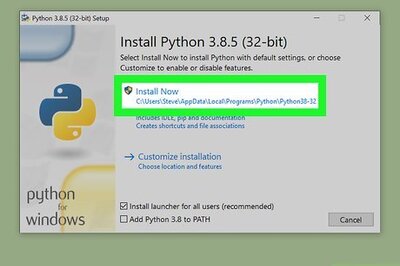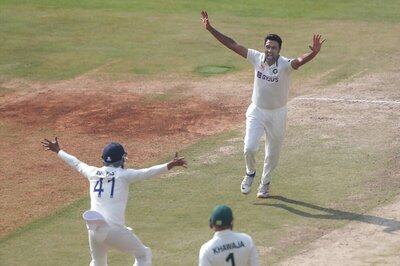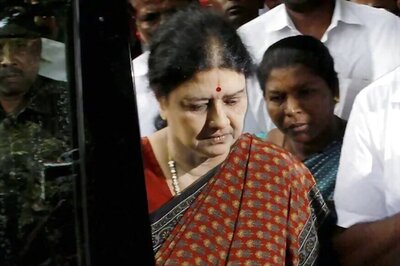
views
President Donald Trump signed an executive order Wednesday allowing punitive sanctions on foreigners who interfere in US elections, two years after Russia allegedly meddled on his behalf in the presidential campaign.
The order sets up a formal process to put financial penalties and blocks both on actors seen trying to hack into voting systems and those spreading disinformation through media and online -- both of which took place in the 2016 election.
"We have seen signs of not just Russia, but from China, and capabilities potentially from Iran, and even North Korea," interfering in the run-up to the November 6 congressional elections, Director of National Intelligence Dan Coats said, announcing the new order.
"We are looking forward, using the basis of 2016 as a warning signal ... so that doesn't happen again," Coats said, promising round-the-clock monitoring through November.
Coats and other US intelligence chiefs have said since the beginning of 2017 that Russian President Vladimir Putin presided over a concerted effort via hacking and social media manipulation to boost Trump's chances in 2016 to defeat Democratic rival Hillary Clinton.
The outgoing Barack Obama administration hit Moscow with sanctions and expelled a large number of alleged Russian spies in retaliation for the interference.
But since becoming president, Trump has repeatedly dismissed the idea that he was helped by Moscow, calling it "fake news," and has avoided criticizing Putin.
Instead, the main action taken since then has been indictments issued by Robert Mueller, the special counsel investigating possible collusion with Russia.
In the past year Mueller's team has filed charges against 12 hackers of the Russian GRU intelligence agency, and 13 people, including a top Putin crony, linked to the St. Petersburg-based Internet Research Agency, which US intelligence says is a major source of online disinformation.
Trump 'acted decisively
White House National Security Advisor John Bolton said Wednesday that now, Trump had "acted decisively" on the issue.
"We felt it was important to demonstrate the president had taken command of this issue. It's something he cares deeply about," Bolton told reporters.
"Obviously we're looking at having evidence that interference has occurred," he said, but added: "The executive order is not country-specific."
The order sets up a 90-day time frame for assessing reports of any kind of interference by foreign individuals and companies, and then deciding on the appropriate sanctions, which include freezing assets, banning business dealings with Americans and locking the actors out of the US financial system.
While such powers already exist in the White House and US Treasury, Coats said the new order would set up an automatic and formal review, while giving Trump flexibility on what actions to take.
It came as Congress has been weighing its own legislation to punish those interfering in elections, which the White House reportedly fears could overly tie the president's hands.



















Comments
0 comment